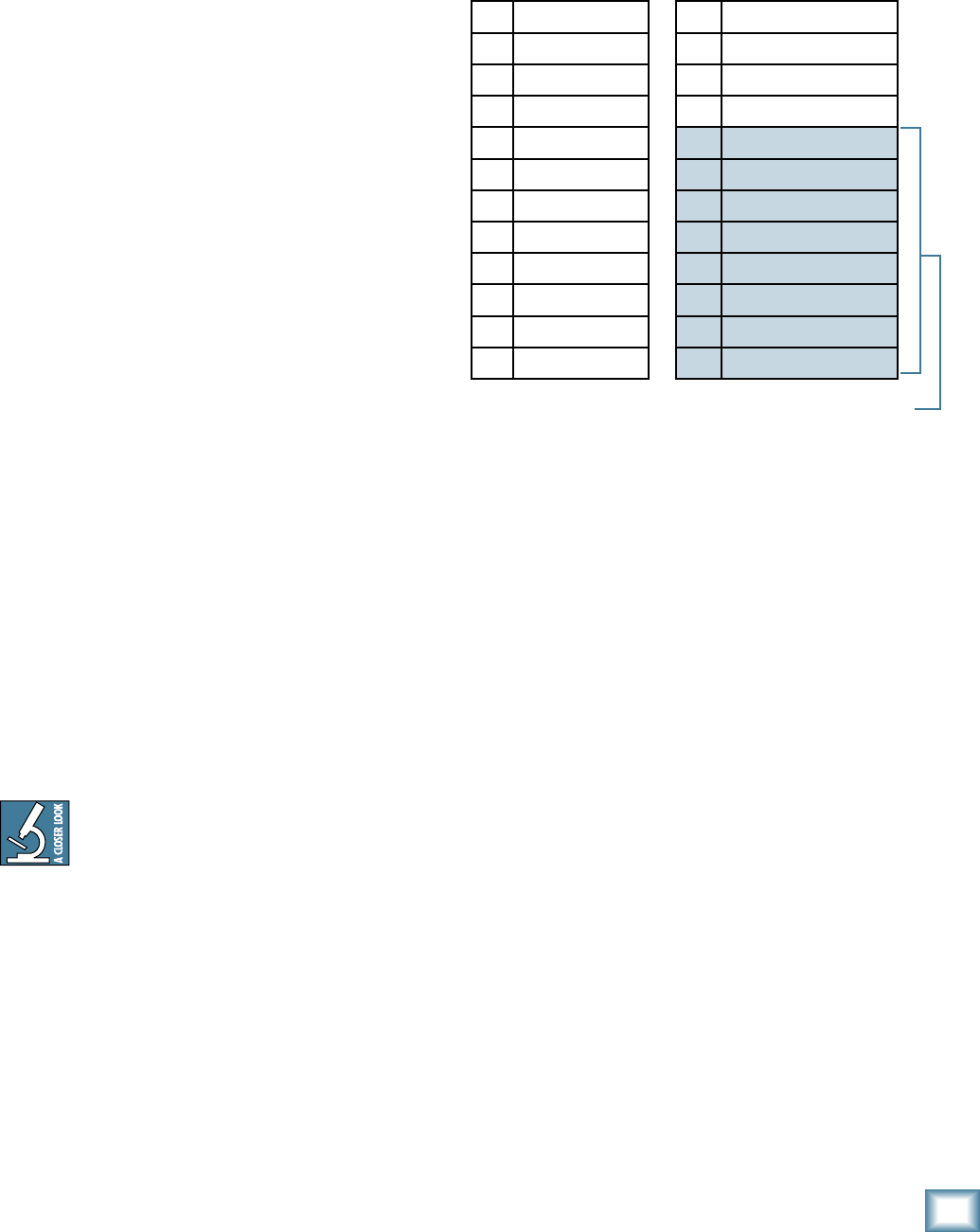
23
Owner’s Manual
Owner’s Manual
The signals going into the processor are affected by
the channel FX/mon 2 controls [22], and the channel
level controls [27] (if the FX send/mon 2 send switch
[47] is out (post)). Check the LED if you alter these
controls.
47. FX SEND (POST)/MON 2 SEND (PRE)
This switch lets you choose which signal path is used
to feed the internal effects processor (and the FX/mon 2
output [15]) as follows:
FX SEND (POST)
Choose this (out) position when you want to use the
internal effects processor, or if you want to set up an
external processor.
The FX/mon 2 control [22] on each channel samples
the channel signals after (post) the channel level
controls [27]. Any changes to the channel level will also
affect the level feeding the internal effects.
You can also set up an external effects processor by:
1. Muting the internal effects processor.
2. Connecting the FX/mon 2 output to an external
processor.
3. Returning the processed signal back to a free
mono or stereo channel line input.
MON 2 SEND (PRE)
In this position (in), the FX/mon 2 control on each
channel samples the channel signals before (pre) the
channel level controls.
This is ideal for using the FX/mon 2 output to feed a
stage monitor 2 setup, or to use the internal power amp
to power it (power amp mode switch [4] in the mon
1/mon 2 position).
You might want to mute the internal effects processor
with the FX mute switch [54].
For more details, please see page 14, or the
rather lovely block diagram on page 29.
48. PRESET DISPLAY
This display shows the number of the currently
selected effects preset, as shown in the list of presets
silkscreened to the left of the display. Rotate the preset
selector knob to choose a preset.
The new preset will be loaded approximately 1/4 of
a second after you stop turning the knob, and will be
stored into the FX memory after about one second.
When the powered mixer is turned on, the FX section
will load up the last-used preset.
49. PRESET SELECTOR, TAP DELAY and LED
Rotate this endless control to select one of the 24
preset effects. When you stop the rotation, that preset
will be loaded and become operational. The current pre-
set number is shown in the display [48]. The different
presets are shown in this table and marked on the panel
silkscreen. Further details of each preset are shown in
Appendix D on page 30.
The knob also offers a tap delay function for the pre-
sets 17 to 24. This works as follows:
1. Use the knob to select a preset from 17 to 24.
2. Press the knob in at least two times.
The DSP processor will calculate the time delay
between the last two pushes, and it will assign
this time interval to the echoes of the current
digital delay. The minimum tap delay is 50 ms
and the maximum is 500 ms. If taps are faster
than 50 ms, they will be set to 50 ms. If taps
are between 500 ms and 1 second, they will be
set to 500 ms. If taps are greater than 1 sec-
ond apart, they will be ignored. Try again a bit
faster.
3. The LED will flash in time with the new tap
delay time.
50. INTERNAL FX MUTE
When engaged, the internal effects processor is muted
at its output, and the adjacent LED will come on. The
footswitch connection [16] becomes disabled, and you
will not be able to use the footswitch to mute or unmute
the effects.
If this switch is not engaged, then the internal effects
can be muted or unmuted with the footswitch.
Congratulations!You’vejustreadaboutallthefea-
tures of your powered mixer. Time for a cold one.
1 Plate Reverb 13 Chorus
2 Vocal Plate 14 Chorus+Reverb
3 Warm Room 15 Doubler
4 Bright Room 16 Tape Slap
5 Warm Lounge 17 Delay 1 Brt 350ms
6 Small Stage 18 Delay 1 Wrm 300ms
7 Warm Theater 19 Delay 2 Brt 250ms
8 Bright Stage 20 Delay 2 Wrm 200ms
9 Warm Hall 21 Delay 3 Brt 175ms
10 Concert Hall 22 Delay 3 Wrm 150ms
11 Cathedral 23 Chorus+Dly300ms
12 Gated Reverb 24 Reverb+Dly200ms


















